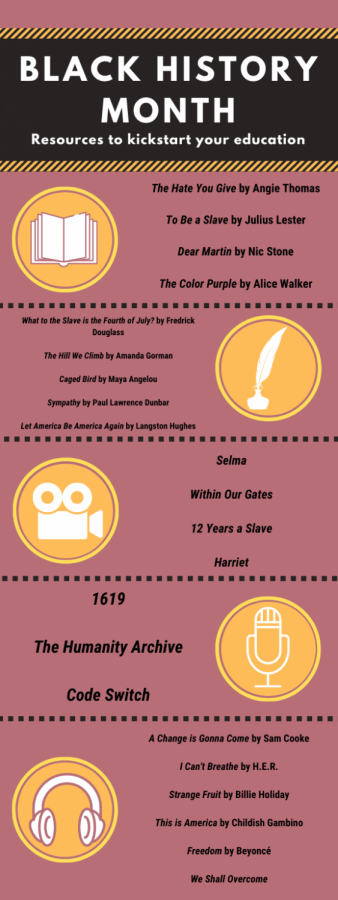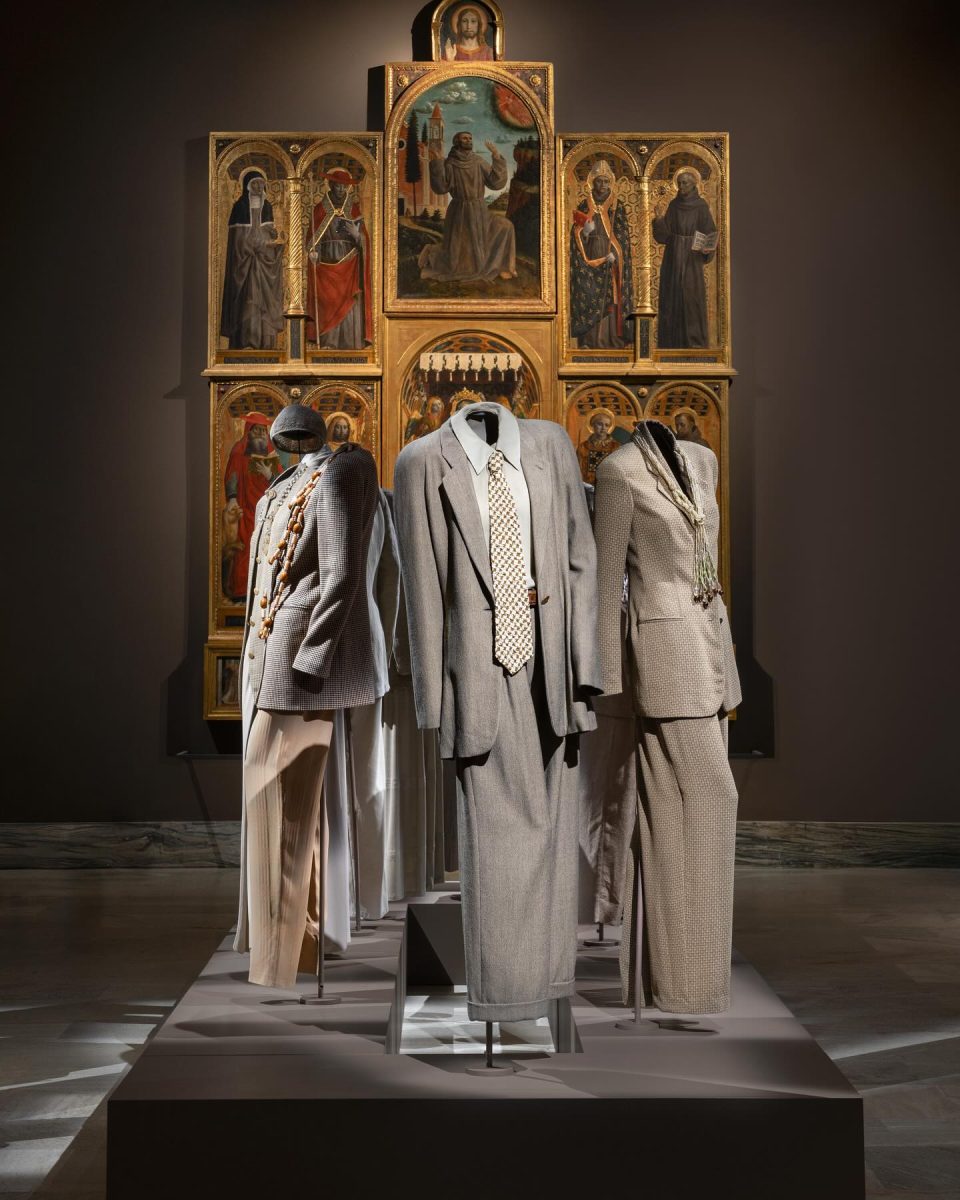Celebrating Black History Month
Books, poems, movies, podcasts and songs
February 2, 2021
BOOKS
“The Hate You Give” by Angie Thomas
Inspired by the Black Lives Matter movement and the police shooting of Oscar Grant, “The Hate You Give” is a young adult fiction novel that explores the themes of racial injustice through the eyes of 16-year-old girl.
“To Be a Slave” by Julius Lester
Going back in time, “To Be a Slave” includes the personal accounts of former slaves along with historical writing and context by Lester. The different passages tell of the journey from Africa to the United States.
“Dear Martin” by Nic Stone
“Dear Martin” tells the story of a young Black student who falls victim to racial profiling and struggles to rely on supportive relationships. The novel is written as diary entries to Martin Luther King Jr., looking for guidance and strength as he tackles the issues of race relations.
“The Color Purple” by Alice Walker
Before its adaptation to film and theater, “The Color Purple” was a book written about early 20th-century Black women struggling with domestic and sexual abuse. It narrates the story of women who are oppressed and dominated yet find strength in each other.
MOVIES
“Selma”
“Selma” follows the true story of Dr. Martin Luther King Jr. as he led the historical march from Selma to Montgomery during a fight for civil rights. Although segregation was illegal then, discrimination still existed that made it difficult for Blacks to vote. This movie shows their journey and the challenges they faced.
“Within Our Gates”
A silent film from the 1920s, “Within Our Gates” depicts a woman raising funds to keep a Southern school open to the public so Black children could receive an education.
“12 Years a Slave”
Based on the autobiography of Solomon Northrup, “12 Years a Slave” tells the story of Northrup’s journey through the slave trade. A free Black man living in upstate New York, Northrup found himself in a life-or-death situation as he was kidnapped and sold into slavery. For years he was subjected to cruelty as he tried to find a way back to freedom.
“Harriet”
“Harriet” tells the many stories of Harriet Tubman, an abolitionist who helped to free hundreds of slaves through the use of the Underground Railroad.
POEMS
“What to the Slave is the Fourth of July?” by Fredrick Douglass
In this poem, Douglass addresses the juxtaposition between people celebrating America’s past and others mourning it. He gave this speech on July 5, 1852, in New York.
“The Hill We Climb” by Amanda Gorman
This poem was written the night of the Capitol’s insurrection. Gorman then read it at the inauguration of President Joe Biden. It addresses the racial injustices in America and the hope to come.
“Caged Bird” by Maya Angelou
Angelou’s famous poem, “Caged Bird” serves as a metaphor to the anti-slave protests and became a prominent symbol in Angelou’s work.
“Sympathy” by Paul Lawrence Dunbar
A prelude to “Caged Bird,” “Sympathy” highlights the brutal treatment and captivity of slaves in America.
“Let America Be America Again” by Langston Hughes
Known for his great influence during the Harlem Renaissance, Hughes speaks in this poem about the American dream of freedom and opportunity. He challenges the idea that all Americans still have this equal opportunity that was once the basis for America itself.
PODCASTS
“1619”
From The New York Times, “1619” features five episodes that tell the past and present stories of Black suffrage.
“The Humanity Archive”
Host Jermaine Fowler retells traditional history, including a larger racial narrative that oftentimes isn’t touched on in regular schooling.
“Code Switch”
“Code Switch” encompasses the impact race has on all parts of society – music, history, sports, politics, pop culture and everything else. The discourse facilitates race conversations and provides an opportunity to expand our understanding of the world.
SONGS
“A Change is Gonna Come” by Sam Cooke
Written after a discriminatory encounter in Louisiana, Cooke’s “A Change is Gonna Come” talks about the hope of a better future.
“I Can’t Breathe” by H.E.R.
Along with a stirring music video, this song documents the Black Lives Matter movement and the deaths of George Floyd and others who lost their lives to senseless violence.
“Strange Fruit” by Billie Holiday
“Strange Fruit” protests the lynching of Blacks, comparing them to fruit hanging on a tree.
“This is America” by Childish Gambino
This song has a deeper meaning, explained also in the music video. Gambino implies that America uses Black celebrities to distract from the fact that race and violence are still very present.
“Freedom” by Beyonce
“Freedom” champions a message of breaking through chains, both physically in history and metaphorically.
“We Shall Overcome”
Originating as a gospel song sang in the fields by slave workers, “We Shall Overcome” has become a protest song covered by many artists in connection with racial inequality.






